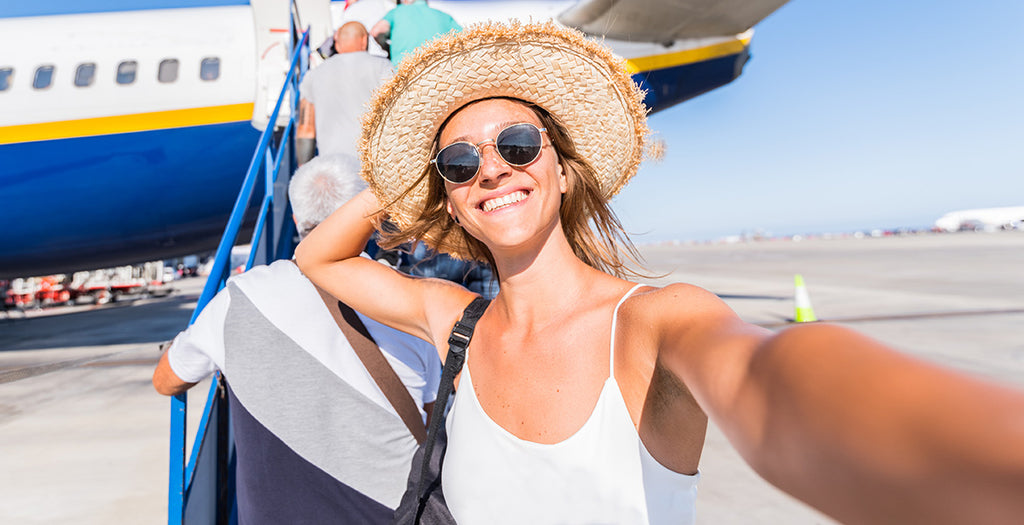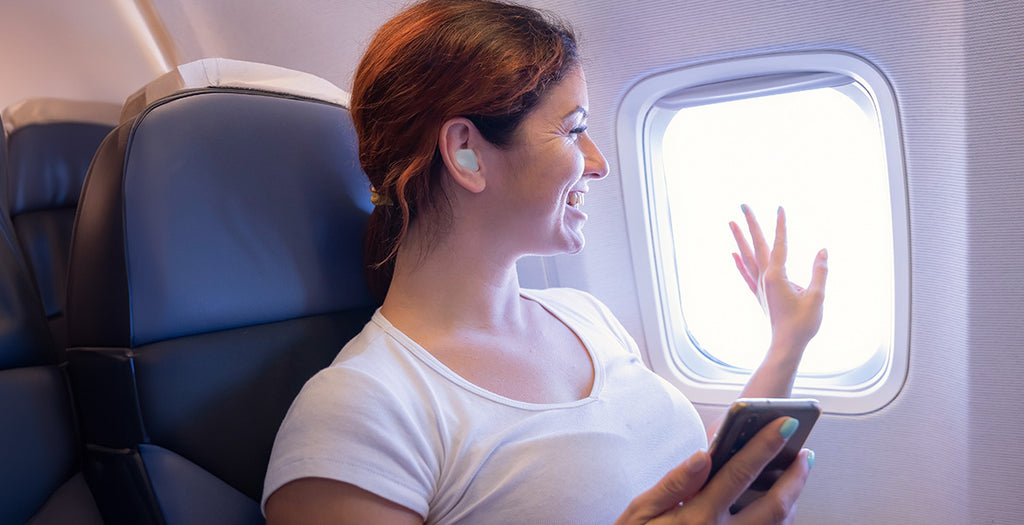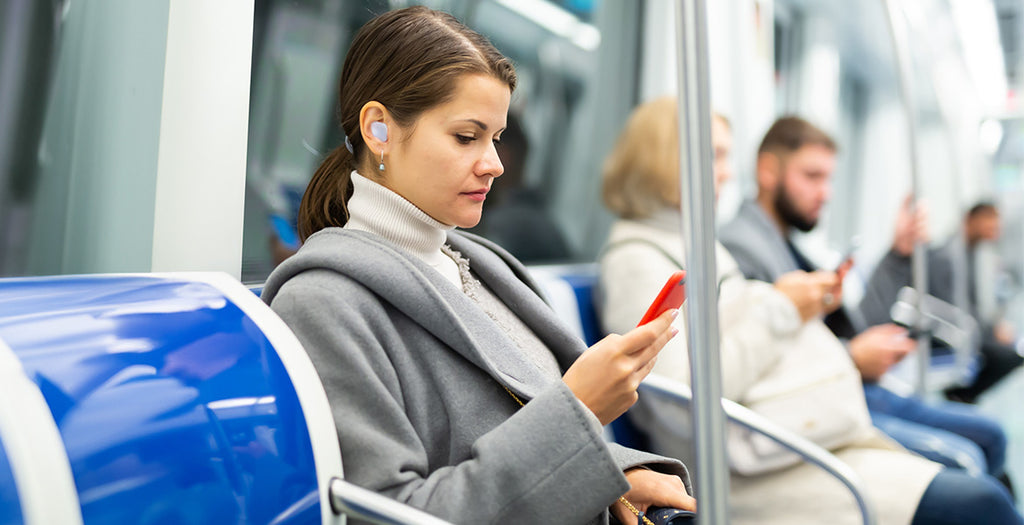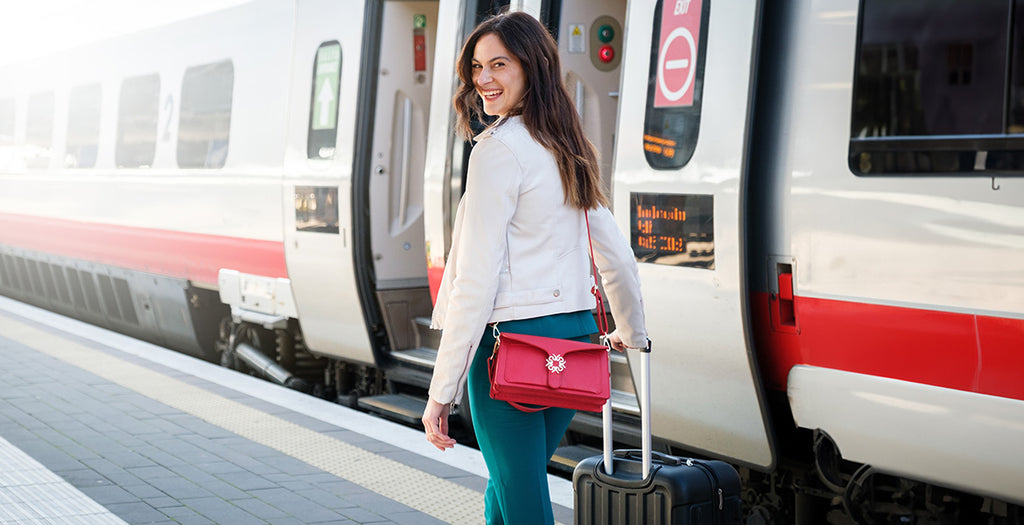Traveling can be an exciting adventure, but it can also be draining. The constant noise and disrupted sleep patterns associated with planes, trains, hotels, and tourist sites can leave travelers feeling exhausted. Fortunately, simple earplugs offer an effective solution to help mitigate travel fatigue. This guide will explore how earplugs can restore peace and energy to weary travelers in various situations.
Introduction

From the drone of airplane engines to thin hotel walls, travelers face many challenges getting the rest they need. Constant ambient noise stresses the body, interrupts sleep cycles, and aggravates fatigue.
Earplugs provide a convenient way to block excessive sound pollution and promote relaxation. Their small size makes them easy to pack and use anytime, anywhere. With the right earplugs, travelers can create their peaceful cocoon amid the busiest, noisiest environments. By reading this blog, you might learn how these miniature sound barriers can restore calm and combat exhaustion during your travels.
Travel Situations Requiring Earplugs
1. Air Travel

Airplane cabins generate up to 105 decibels of background noise. This loud environment makes it difficult to fall asleep, especially when coupled with cramped seats and disruptive passengers. Earplugs are a simple way to reduce the ambient roar. By decreasing in-flight noise by 15 to 30 decibels, they allow travelers to relax, nap, or focus despite the surroundings. Select earplugs with a high noise reduction rating to offset even screaming babies or chatty seatmates. Getting some shuteye on the plane will help arrivals avoid that groggy, jet-lagged feeling.
2. Hotel Room
Seeking refuge in a hotel room doesn't always guarantee a quiet night's sleep. Noise pollution from nearby elevators, plumbing, early morning housekeeping, or thin walls often disrupts slumber. Earplugs block out these sleep thieves, creating a sanctuary inside the room. Their noise-dampening abilities ensure travelers awake well-rested instead of bleary-eyed from fitful rest. Packing a pair of comfortable earplugs saves having to rely on flimsy disposable ones from the front desk. Don't let noise disturbances detract from the relaxation a hotel stay should provide.
3. Public Transport

Buses, trains, and other public transit tend to assault passengers' ears with screeching brakes, loud announcements, and chatter. Pop in earplugs to claim an oasis of calm amid the audio attack. Enjoy your favorite music or an engrossing audiobook without cranking up the volume to drown out background noise. Earplugs allow travelers to unwind or be productive while commuting, rather than adding to travel stress. For overnight bus or train rides, they also promote sound slumber to reach your destination refreshed.
4. Tourist Sites
The sights and exhibits at landmarks and museums excite the eyes, but the crowds and acoustics can overwhelm the ears. Travelers can prevent audio sensory overload by using earplugs to lower the noise level, which allows you to focus fully on the attractions without loud chatter or crying children diverting your attention. Earplugs also enhance the experience of audio tours, allowing clear transmission of the narration directly into your ears. Don't let noise spoil your visit to must-see destinations.
5. Additional Occasions
Camping, hiking, and water sports open travelers to soothing natural sounds. Unfortunately, nearby human activity or equipment noises often intrude. Earplugs help block out passing traffic, rowdy campers, boat engines, etc. to create a serene setting, which enables you to enjoy the crackling fire or lapping waves without the disruption. For swimming and watersports, you can choose waterproof earplugs to keep water out and sound out. Packing earplugs with your tent or backpack can maximize the tranquility of outdoor activities.
Picking Perfect Earplugs for Travel
With myriad types of earplugs available, it's important to select the right pair tailored to your needs and scenarios. Disposable foam earplugs are affordable and block moderate noise levels. For swimming and water sports, it is a good choice if you wear moldable silicone putty or specially designed waterproof plugs to seal out water.
- Look for earplugs with a high noise reduction rating (NRR), which indicates effectiveness at decreasing decibels. An NRR of 30 or higher provides significant noise blocking. Reusable molded rubber earplugs fitted to your ear's shape block more sound without pressure discomfort compared to foam.
- Consider noise-canceling or sound-amplifying "high-tech" earplugs for maximizing rest amid chaos. Try different sizes and styles to find the perfect fit and sound-dampening level for your ears. Test potential earplugs at home before your trip to identify the best comfort and noise cancellation mix. Research airlines, hotels, and destinations to anticipate noise levels and pack appropriate earplugs.
- Bring earplugs suited for different travel scenarios. Foam plugs work for flights and trains, while moldable putty suits water activities. You can have pairs with different NRRs for flexibility with moderate versus extreme noise. Packing a variety of earplug types ensures you have the right solution for every situation.
Useful Tips for Using Earplugs While Traveling
To benefit fully from earplugs, please use them correctly. You need to roll foam plugs into a thin cylinder before gently inserting them into the ear canal. Slowly twist them into place for a snug, comfortable fit. For reusable plugs, you are required to carefully follow sizing and fitting instructions. Moldable putty or silicone earplugs require kneading and shaping before inserting.
When removing earplugs after use, it's best to gradually withdraw. Avoid quickly yanking them out, which can damage the ear canal. It is necessary to thoroughly clean reusable plugs after each use with mild soap and water to remove earwax buildup. This helps maintain sound-blocking abilities and hygiene.
Carry earplugs in a sturdy case when not in use to avoid damage or debris sticking to the plugs. Bringing extras or disposable pairs serves as backups in case of unexpected loss or if plugs become dirty or defective. Inserting earplugs at least 10-15 minutes before noise exposure allows them to provide the best noise reduction. Maximum effectiveness is promoted by re-inserting cleaned plugs properly each time.
Safety Considerations
Earplugs muffle ambient sound, so there is a need to take precautions in situations where you need to hear warnings. On planes, briefly remove earplugs to hear safety briefings from flight attendants. You can set phone alarms to vibrate rather than audible tones for waking up.
In hotels, it is necessary to request rooms away from fire alarms, emergency exits, and security sensors. So, try to avoid completely blocking out hallway noises in case of an emergency. If possible, you can use earplugs that allow you to hear some muted ambient sounds like conversation. Besides, you might need a travel companion, to help listen for announcements and danger alerts when wearing earplugs.
Bringing an extra pair of earplugs in your carry-on bag prepares you for the possibility of losing your original set. Checking earplugs before inserting them helps avoid using damaged plugs that could break apart and get stuck in the ear canal. Care should be taken when using earplugs around water to prevent swimmer's ear or other infections. With some care taken, earplugs can allow travelers to minimize noise disruptions without sacrificing situational awareness.
Conclusion

Airplane engines, hotel walls, buses, museums – travelers face endless noise sources that disrupt sleep and ruin experiences. Don't resign yourself to fatigue and sensory overload. With effective earplugs, you can create a peaceful personal space amid the travel hubbub. Find the right fit and noise reduction level, use earplugs properly, and remain vigilant about safety. Making these tiny sound blockers part of your packing list will help restore calm, enhance rest, and make any trip more enjoyable. Say goodbye to travel exhaustion by equipping yourself with simple earplugs. The resulting relaxation and energy will empower travelers to maximize every minute of their adventures.
Read More
- The Surprising Reasons People Wear Earplugs in Our Noisy World – hearprotek
- How To Protect Your Ears As A Music Lover – hearprotek
- Is It Safe to Sleep With Noise-Canceling Earplugs? – hearprotek
- Silicone Ear Plugs vs Foam Ear Plugs: What Is the Difference? – hearprotek
- Motorcycle Riding & Its Impact on Hearing – hearprotek












